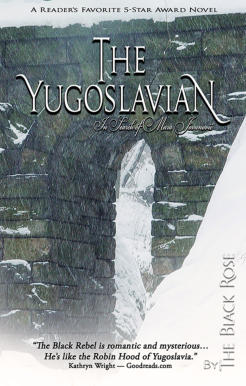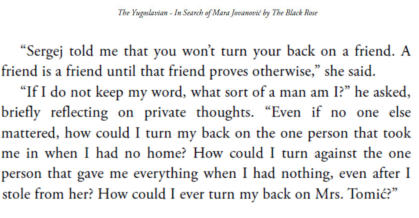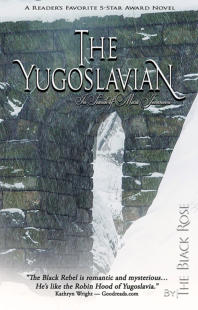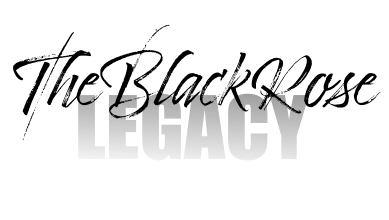.png)





A.Garrett
I’m
not
certain
how
it
happened,
but
it
did.
I
was
in
the
throes
of
writing
The
Killing
Game
when,
one
day,
I
looked
at
a
photograph
and
met
the
gaze
of
a
man
from
the
former
Yugoslavia.
In
my
head,
I
heard
a
voice:
“Write
a
story
about
my
country.”
The
words
were
so
vivid,
as
if
the
speaker
was
right
there
with
me.
Whose
voice
was
it?
God’s?
…
Someone else’s?
It
was
impossible
to
ignore,
and
I
couldn’t
let
go
of
the
idea.
I
tried
to
set
it
aside,
but
within
fifteen
minutes,
I
found
myself
typing
the
opening
sequence
on
my
computer.
By
then,
the
story
had
unfolded
fully
in
my
mind,
eager
to
be
told.
This
happened
during
the
Christmas
holiday
of
1994,
while
the
siege
of
Sarajevo
raged.
I
had
followed
news
of
the
war, yet I couldn’t fully grasp it.
The
media
framed
the
conflict
as
“ethnic
cleansing
due
to
religious
differences,”
but
that
felt
like
a
shallow
explanation.
So
I
started
digging.
I
began
asking
questions,
discovering
that
much
of
the
truth
was
buried
beneath
layers
of
wartime
propa
-
ganda.
I
sought
out
people
from
the
former
Yugoslavia
and
found
them.
They
shared
varied
perspectives,
and
the
complexity
of
their insights was overwhelming.
What
I
gathered
left
me
with
more
questions
than
answers.
But
that
confusion
became
the
heart
of
my
story.
Misconceptions,
lies,
deceptions,
loss,
and
lost
causes
would
shape
the
narrative
about
a
place
I
had
never
studied
or
visited.
I
had
seen
much
in
life,
but
not
war—so
how
would
I
write
about
it?
First,
I
had
to
decide
on
the
story’s
focus.
That
choice
came
in
an
instant:
interpersonal
relationships.
But
what
kind?
Naturally,
a
man
and
a
woman,
though
not
a
typical
re
-
lationship.
War
complicates
things,
doesn’t
it?
Were
they
both
from
Yugoslavia
or
from
elsewhere?
If
both
from
Yugoslavia,
perhaps
they’d
be
desperate
to
escape;
if
from
differ
-
ent
nations,
what
would
bring
them
there,
and why?
At
the
time,
several
movies
were
already
ex
-
ploring
this
conflict,
but
my
story
needed
a
unique
angle.
I
wanted
to
tell
the
untold,
ev
-
eryday
stories
of
those
fighting
simply
to
survive.
I
wanted
to
highlight
the
quiet
he
-
roes
who
struggled
to
help
others
amid
the
chaos.
The
news
often
depicted
civilians
as
frenzied,
scrambling
for
survival—if
they
mentioned
them
at
all
beyond
major
atroci
-
ties.
But
the
press
thrives
on
sensationalism.
I
wanted
something
deeper,
something
that
spoke to the heart and soul of the people.
The
answer
became
clear:
a
man
from
Yugoslavia
and
a
woman
from
America.
But
what
would
compel
her
to
leave
her
comfort
-
able
life
in
the
U.S.
for
a
war-torn
country?
The
answer
lay
in
a
concern
that
had
haunted
me
since
I
first
heard
of
the
war—the
children
who
had
lost
their
parents.
An
orphan
could
be
the
catalyst,
a
motiva
-
tion
strong
enough
to
pull
her
from
her
safe
environment.
So,
the
story
would
revolve
around
a
man
from
Yugoslavia,
a
woman
from America, and an orphan.
I
wrote
a
rough
sketch
before
I
discovered
the
documentation
of
the
war’s
atrocities.
My
sketches
are
cohesive
outlines
of
events
as
they
will
unfold,
usually
requiring
more
de
-
tailed
work
later.
I
drafted
this
sketch
before
reading
about
the
prison
camps
held
by
all
three
warring
sides—Muslims,
Croatians,
and
Serbians.
By
these
ethnic
labels,
I
mean
the
military
factions
involved,
not
the
civil
-
ians;
however,
nationalist
ideologies
often
spilled
into
civilian
life
as
well.
My
story,
however,
focuses
on
one
man,
driven
solely
by
a
sense
of
what
is
right
according
to
God’s laws.
I
aimed
to
portray
a
man
who,
although
not
of
Serbian
descent,
was
raised
by
a
Serbian
family.
In
his
circumstances,
a
lesser
man
might
have
let
nationalist
allegiances
sway
him,
turning
on
the
very
people
who
had
given
him
a
safe
and
beautiful
life.
As
the
hero himself put it:
For
now,
I
won’t
delve
into
the
details
of
what
caused
the
war.
Read
the
book,
and
you’ll
find
enough
context
to
understand
its
roots
without
dwelling
on
the
conflict
itself.
Instead,
you’ll
be
drawn
into
an
adventure
that
focuses
less
on
war
and
more
on
love
and
honor.
Through
these
emotions,
the
story
will
reach
your
heart.
You’ll
feel
the
plight
of
souls
caught
between
warring
fac
-
tions,
fighting
for
all
they
believed
to
be
right.
By
the
end,
you’ll
either
relate
to
the
charac
-
ters,
thinking—That’s
exactly
what
I
would
have
done—or
close
the
book,
deciding
get
-
ting involved was foolish.
Either
way,
you’ll
have
felt
something—and
that,
in
the
end,
is
what
writing
is
about.
Love,
hate,
sorrow,
joy—whatever
the
emo
-
tion,
the
goal
is
that
you
experienced
it
within the story.
Writing The Yugoslavian
When the Story Chooses You


- PREVIEWS
- The Killing Game
- The Chase
- The Final Hour
- Time - A Precious Commodity
- The Lost Days - Ives' Sorrow
- The Last Hope - Shattered Hearts
- Unrequited
- The Lesser Evil - Let the Games Begin
- The First Move Teaser
- The First Move - Ink
- The Yugoslavian - A Wanted Man
- The Yugoslavian - Tess' Travel Journal
- Cold - The Black Rebel
- VISUAL ESSAYS
- SOUNDTRACKS
- PODCASTS
"For the Word of the Cross is folly to
those who are perishing, but to us who
are being Saved it is the Power of God."
1 Corinthians 1:18
-1.png)

- Home
- Begin
- The Stories
- Narratives
- Narratives
- Previews
- Previews
- The Killing Game
- The Chase
- Time - A Precious Comodity
- The Final Hour
- Ives' Sorrow - The Lost Days
- Shattered Hearts - The Last Hope
- Unrequited - Eichel & Allina
- Let the Games Begin - The Lesser Evil
- The First Move Teaser
- The First Move Ink
- A Wanted Man
- Tess' Travel Journal
- Cold - The Black Rebel
- Visuall Essays
- Soundtracks
- Podcasts
- Behind the Scenes
"For the Word of the Cross is folly
to those who are perishing,
but to us who are being Saved
it is the Power of God."
1 Corinthians 1:18































